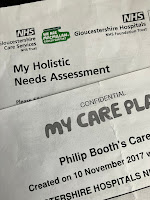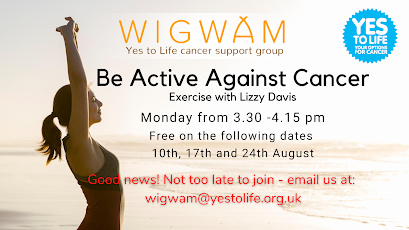Several years ago I helped host an online Forum with Yes to Life looking at the evidence around aspirin - this led to Yes to Life publishing a leaflet to raise awareness about the possible benefits and trials - see here: https://yestolife.org.uk/resource/low-dose-aspirin-and-cancer-treatment/
There was also a radio show with Yes to Life's Robin Daly interviewing two doctors researching it - see here: https://ukhealthradio.com/blog/episode/safe-effective-and-cheap-prof-peter-elwood-and-dr-gareth-morgan-present-their-latest-findings-on-the-use-of-aspirin-in-cancer-treatment/Some six months ago I started taking 75mg of aspirin. I am aware that long term low dose usage is where there is growing evidence of its impact - it was good to see research published in Nature out this month is now starting to understand how aspirin works. Positive News reported on the latest research:
Scientists believe that they have worked out how aspirin stops some cancers from spreading. Studies of people with cancer have previously observed that those taking daily aspirin have a reduction in metastases – the spread – of some cancers, such as breast, bowel, and prostate cancers. Until now, it wasn’t known how aspirin is able to prevent metastases. But a study by the University of Cambridge, England, suggests that, as cancer starts spreading, there is “a unique therapeutic window of opportunity when cancer cells are particularly vulnerable to immune attack”. Aspirin can help the body launch that immune attack. The discovery could lead to the targeted use of aspirin to prevent the spread of certain cancers, and to the development of more effective drugs to prevent metastasis. However, scientists cautioned that aspirin can cause serious side-effects for some, and that people should consult their doctor before starting to take it.
Update 29.03.25: Just listening to excellent talk with Prof Joachim Drevs on using aspirin - the talk should be available within a couple of weeks on the Yes to Life website - excellent! Why with all the research is it not standard treatment? Here is the brief about the webinar: "In many clinical studies, Aspirin is well proven for its preventive and adjuvant efficacy in all types of solid cancers. A similar salicylic acid, Diflunisal, has been used by us in a compassionate use programme since 2011. The particular mechanism of action of Diflunisal is highly effective, as demonstrated in patients with various cancer types, where a swift reduction in tumour burden has been observed. Additionally, this treatment has a secondary mode of action involving the immune system. The treatment protocol typically consists of five cycles, each lasting five days, and is generally well-tolerated. Despite its potent anticancer effects, the treatment's safety profile is considered favourable. Preliminary data from a pilot study suggest promising outcomes, with an approximate response rate of >60% for partial or complete remission and around 30% of patients achieving lasting remissions, regardless of tumour origin."


















